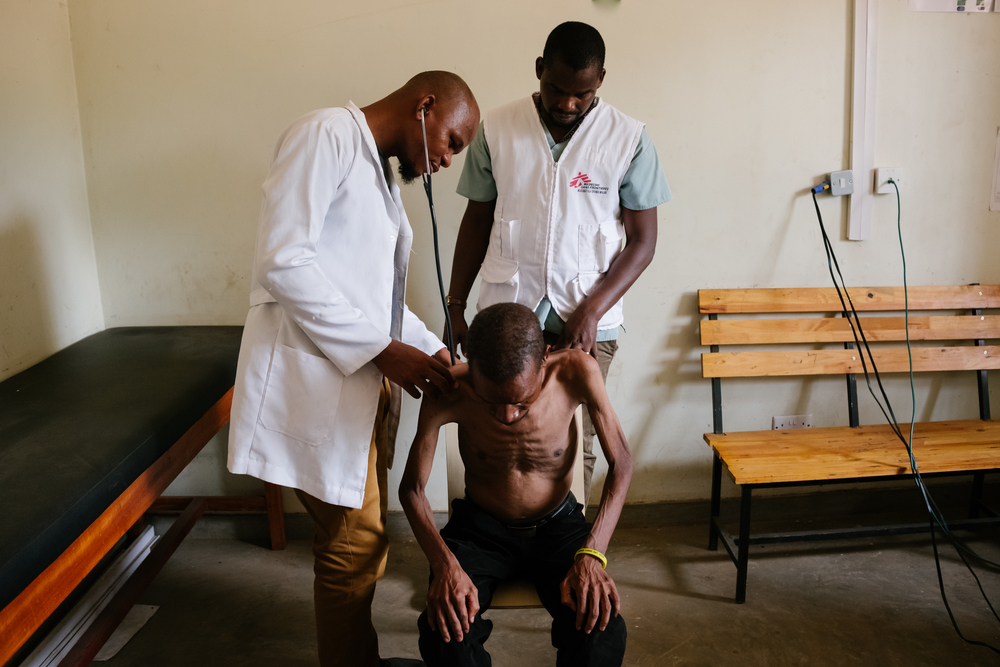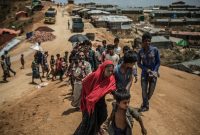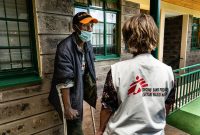HIV/AIDS, Tuberculosis and Malaria
Together, HIV/AIDS, tuberculosis (TB) and malaria account for millions of deaths around the world every year – most of them in countries already struggling to cope with under-resourced health systems. Doctors Without Borders/Médecins Sans Frontières (MSF) works directly in all three of these ongoing epidemics: We are the largest nongovernmental provider of TB care in the world, we are the only provider of HIV programming in a number of places, and each year we treat millions of malaria cases across our medical projects.
As a result, MSF has witnessed first-hand how the global fight against HIV/AIDS, TB and malaria has recently been going in the wrong direction, following years of progress.
- TB: The number of global deaths are increasing again, and fewer people (especially with drug-resistant forms of the disease) are receiving treatment.
- HIV/AIDS: Nine and a half million people around the world living with HIV are not on treatment and many of those who do start it are already at a more advanced stage of the disease, putting them at much higher risk of death.
- Malaria: The numbers of people getting sick with malaria are once again steadily increasing, as are the numbers of deaths – the vast majority of which are of children under the age of five.
These reversals can be partly explained by the global COVID-19 pandemic, which disrupted treatment programs especially in lower-income countries, and from which many of the world’s most fragile health systems have yet to recover. But even before COVID-19, the global response to these epidemics was stalling. Funding cuts have led in many places to a substandard quality of care. Crucial missing elements can include tests for the level of virus in the blood; medicines to treat people with opportunistic infections (i.e., infections more likely to occur in people with compromised immune systems and put them at greater risk); or adapted pediatric care.
There is no way to address the most persistent inequities in global health without addressing these three deadly diseases. Fortunately, we have already seen that progress is possible, much of which has been facilitated by the Global Fund to Fight AIDS, Tuberculosis and Malaria (known simply as the Global Fund) – the primary funding mechanism for the world’s collective response to these diseases.
MSF is not a partner of the Global Fund. We deliver our own independent response in places where other treatment and care options for patients affected by these diseases don’t exist. Our teams continue to see unacceptable and deadly gaps in the global response to HIV/AIDS, TB and malaria. That’s why we call not only on governments and other donors to continue supporting the fight against these killer diseases, but on the Global Fund itself and its partners to address ongoing failures and to prioritize those areas where life-threatening gaps in action persist. This includes testing and treatment for opportunistic infections, which is a particular risk for people living with HIV.
Why it matters to Canadians
In September 2022, Canada announced a $1.2-billion contribution over the next three years to the Global Fund to Fight AIDS, Tuberculosis and Malaria at the fund’s replenishment conference in New York City. This was a welcome reiteration of Canada’s commitment to worldwide efforts to eliminate these three deadly diseases, and of its history of supporting programs aimed at both reducing the suffering they cause and finding ways to stop their spread.
But that renewed commitment was also a reminder of the important role Canada must play not just in funding the global response to HIV, TB and malaria, but also helping to shape it.
Canada has a seat at the decision-making table – it sits on the board of the Global Fund, the World Health Organization Executive Board, and other prominent global health organizations. It also has a stated willingness to do more to respond to global public health problems.
For these reasons Canada can and should continue to push for well-funded and more impactful programs to meet people’s health needs. Its position at the forefront of these critical initiatives gives it a responsibility to not only provide funding for efforts to fight HIV/AIDS, TB and malaria, but also to demand accountability from the recipients of that funding, whose work it is to bring about the end of these epidemics. After years of progress, we are seeing global gains against these diseases move in reverse, and Canada’s role must be to insist its partners and allies in this work use their resources appropriately and once again move these efforts forward.
Canada’s connection with wider global health issues
It is also worth emphasizing that Canada’s support for efforts against HIV, TB and malaria should not be seen as an act of charity, but as an critical, necessary contribution to global public health management.
As the COVID-19 pandemic made clear, Canada is not immune from the impacts of global health crises, and the continuing spread of the world’s deadliest infectious diseases poses a risk to the health of Canadians themselves and the stability of the world in which they live. People in Canada living with HIV remain highly vulnerable to health complications related to the virus, and TB – which was once the leading cause of death in Canada – continues to devastate many communities in this country, especially people born outside of Canada and Indigenous communities, particularly in Canada’s North. That TB remains a problem in a well-resourced a country like Canada is a reminder of the seriousness of the wider global issue, and the importance of the need to address it.
Canada’s laudable contributions at the 2022 Global Fund Replenishment should therefore mark not the end, but rather the beginning of work that needs to be done. MSF calls on Canada, and other Global Fund contributors, to use their positions on the board of the fund to ensure programs for HIV, TB and malaria get back on track for the patients who depend upon them.





